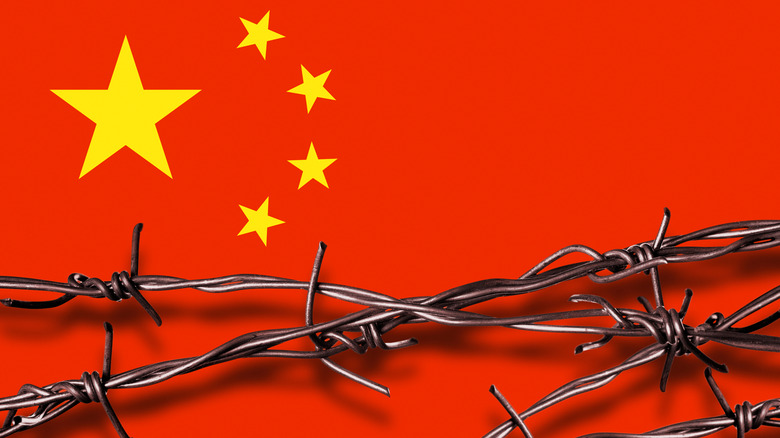What You Might Not Know About China's Execution Vans Still Used Today
China's government has faced harsh criticism over rumors of unfair prosecutorial procedures and a brutal punishment system, which includes execution by firing squads and lethal injections. Although both methods have been used to execute criminals in other countries — including the United States — the alleged number of executions in China has been raised as a cause for concern. As reported by The Sun, the rest of the world's combined executions average 657 per year. In China, the numbers are reportedly in the thousands. China's use of mobile execution vans, which are often referred to as "death vans," has also become a point of heated controversy.
The Chinese government argues that the death penalty is an effective crime deterrent. However, human rights organizations have criticized the lack of fairness in the Chinese judicial system and the apparent inclination to sentence accused criminals to death. Although most countries reserve the death penalty for criminals accused of violent crimes, News.com.au reports China also executes those convicted of drug offenses and a number of white-collar crimes.
According to some reports, China's conviction rate is around 99 percent, and thousands of those convictions result in the death penalty. In many cases, the public is invited to attend "mass sentencing rallies," where accused criminals are convicted and sentenced to death in what News.com.au refers to as "medieval-style public trials." Although China vowed to halt executions by firing squad in 2010, The Sun reports convicted killer Zhao Zewei was executed in this manner in 2018.
Are execution vans still being used today?
Despite the fact that firing squads are still used in some cases, lethal injection has become the most prominent form of execution in China. As reported by The Sun, one of the preferred methods for administering lethal injections is to use so-called mobile execution vans. According to reports, convicted criminals are escorted into the vans, where they are strapped to a table and injected with lethal drugs. The Sun reports the unusual practice allows criminals to be executed remotely and in a "more secretive nature."
Chinese government officials acknowledged execution vans were first used in 2003. And while they insist they are no longer being used, representatives with Amnesty International said execution vans are still in use in the country. Nevertheless, the number of criminals executed in the mobile units is difficult to estimate, and the identities of those executed in the vans are rarely publicized. However, Liu Yong, who was an accused "mafia kingpin," was reportedly executed in one of the vans. The Sun reports Yong's execution was particularly controversial, as his confession was reportedly given under torture.
Professor William Schabas, who authored Amnesty International's death penalty report, said "a significant majority" of China's citizens are in favor of capital punishment. Still, the Chinese government has faced harsh criticism for sentencing citizens of other countries to death. Recently, Canadian citizen Robert Lloyd Schellenberg was sentenced to death in China for drug smuggling, and Canadian Prime Minister Justin Trudeau is still fighting for his release.

